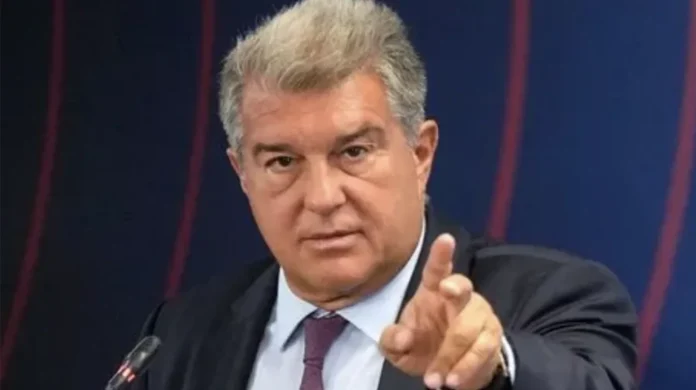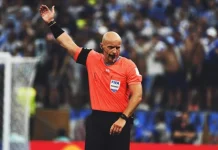The 2025 growth of FIFA Club World Cup to 32 teams, has redefined entry to the most highly esteemed club competition in the world of football. It is the first time in history that the qualification system is decided by titles based not only on continents but also on club coefficients and the restriction on the number of clubs in one country. Such structural developments have had far reaching impacts, which include marginalizing historic giants such as FC Barcelona, though the club is a world renown.
FIFA introduced this model to ensure regional representation while using performance metrics to determine elite status. There were 12 slots allotted to UEFA, 6 allotted to CONMEBOL with the rest allotted to CAF, AFC, CONCACAF, and OFC as well as to the host country. The clubs that won the continental titles in the years between 2021 and 2024 were automatically entitled to the slots whereas the rest of the slots were distributed according to the performance points in the period in question. Although this approach is open in terms of its numerical foundation, the results have been seen by many as unfair particularly in cases of high profile clubs in countries with more than one elite team.
The UEFA Two-Member Cap And Its Impact On Barcelona
One of the most controversial aspects is the ruling of FIFA to allow a single national association to field only two clubs, with an exception of a club winning two or more titles during the qualification period in the champions league. This limitation has been of great consequence in the leagues such as La Liga and the premier league where not less than two clubs do act at the highest levels of the European game.
For example, Spain, Real Madrid and Atletico Madrid were able to qualify because of better performance on the continent. Therefore, Barcelona which used to be always one of the most influential clubs in the world was excluded. Their 2021-2024 performance in the Champions League was not enough to win even the semifinals, nor the title, which did not justify their time within the limited evaluation period.
How Rankings Emphasize Recent Over Historical Success
The FIFA qualification formula, largely based on UEFA’s coefficient system, awards points for recent match outcomes and tournament progression. While objective in nature, this system prioritizes form over legacy. The momentary decline in continental performance of Barcelona was the reason why they lagged behind domestic competitors, even though they were still a commercial and cultural icon of the sport.
This has made a lot of people doubt whether the Club World Cup is a real representation of football elite or a compensation to short run excellence rather than long run excellence. To a club that has had five champions league trophies and a huge global fan base, getting omitted poses more questions as to the philosophy behind the qualifications structures.
Ranking And Legacy: The Marginalization Paradox
There is a greater irony in the fact that Barcelona will not take part in the 2025 tournament, representing one of the larger logical fallacies of world football governing institutions: the marginalization of legacy in favor of mathematical indicators of performance. Clubs who have achieved a huge cultural capital, fan interactions, and institutional value are currently being sidelined to other teams who have achieved recent success but worldwide minor recognition.
Such exclusions alter the tournament’s brand appeal. Fans often expect the Club World Cup to showcase not just current champions, but historically significant contenders. FIFA’s rigid rules have disrupted this expectation, generating dissatisfaction among supporters and commentators. The decision not only affects viewership but also dilutes the narrative richness of the competition.
These consequences expose a philosophical tension in tournament design: whether to prioritize statistical meritocracy or cultural continuity. While FIFA claims fairness in metrics, critics argue that fan identity and football heritage deserve more recognition within global competitions.
Governance Challenges And The Commercial Dimension
The exclusion of globally recognized clubs like Barcelona from the 2025 edition also highlights the tension between commercial goals and sporting representation. The expanded Club World Cup, hosted in the United States, is intended to generate unprecedented revenue through broadcasting rights, ticket sales, and sponsorships. However, keeping out fan magnets like Barcelona may ultimately undercut those commercial objectives.
The tournament’s credibility and profitability depend not just on fair representation but also on star power. Critics argue that while FIFA pursues standardization and inclusivity, it may inadvertently undermine the appeal of the event by failing to ensure participation from historically dominant clubs. As noted by Barcelona President Joan Laporta, “Football’s evolution must not come at the expense of its foundations.”
Players’ Burden In An Overloaded Calendar
The other problem that is emerging is the welfare of players. Domestic leagues, Champions League matches, and playing for national teams are already occupying the schedule, making a month-long tournament in the entire world a physical and mental burden on the players. Barcelona winger Raphinha has already complained about the risk of injuries and insufficient rest time.
This time pressure contributes to the more expanded criticism of FIFA expansion strategy. Competitive integrity against commercial growth is turning out to be a challenge, particularly when fatigue of players and the interests of the clubs are in conflict with the requirements of international tourism organizers.
Public Commentary And Broader Reflection
This individual has spoken on this topic, analyzing how FIFA’s qualification rules disproportionately impact historically significant clubs like Barcelona, arguing that “the current rigid systems stifle traditional powerhouses and diminish the sport’s cultural richness”:
Osasuna lodge complaints as Barcelona Violates FIFA rules by fielding Indigo Martinez yesterday.
We demand a 10 point deduction and Justice must be served! pic.twitter.com/Cgq6dNe80G
— Miss ADEL🦋🦚🌹 (@a_derll) March 28, 2025
This comment reflects a growing concern that football’s evolution is being driven by regulatory rigidity at the expense of organic tradition and narrative depth.
This argument is in line with the appeals of his supporters and analysts who think that current football needs to find a compromise between data-driven governance and the immaterial resources of club identity, legacy, and global appeal. The growing dependence on rigid qualification algorithms is dangerous towards a future where context and cultural significance is set by the wayside in the face of measurable metrics only.
Shifting The Future Of Global Club Competition
The removal of Barcelona as a host of the 2025 FIFA Club World Cup has triggered a broader discussion on the regulation of football and the ideology that drives international club tourism. As the sport keeps going global, the issue of the nature of clubs presented, and the reason will determine the authenticity and attractiveness of competitions such as the Club World Cup.
Though the existing system rewards accuracy and timeliness, it does not fit legacy and brand power. Reforms may be necessary to integrate flexibility into future qualification criteria, possibly incorporating special invitation slots, historical weighting, or hybrid ranking models that blend performance with reputation. Without such adaptations, global tournaments risk alienating core fan bases and missing opportunities to celebrate the full scope of football’s global history.
The challenges raised by FIFA’s current qualification model are not isolated to Barcelona. Other clubs with comparable histories may face similar exclusions in future editions. What’s at stake is more than a single tournament appearance, it’s the evolving definition of what football greatness means in the age of rigid metrics and global commercialization.
As future tournaments take shape, balancing innovation with tradition will remain central to ensuring that football’s most prestigious events are as inclusive of legacy as they are of contemporary success.













